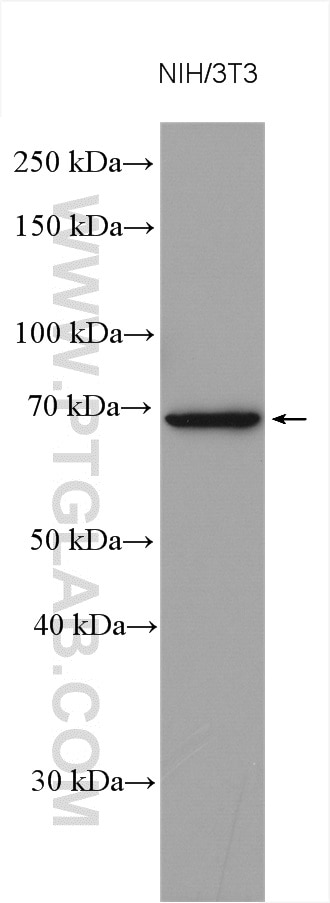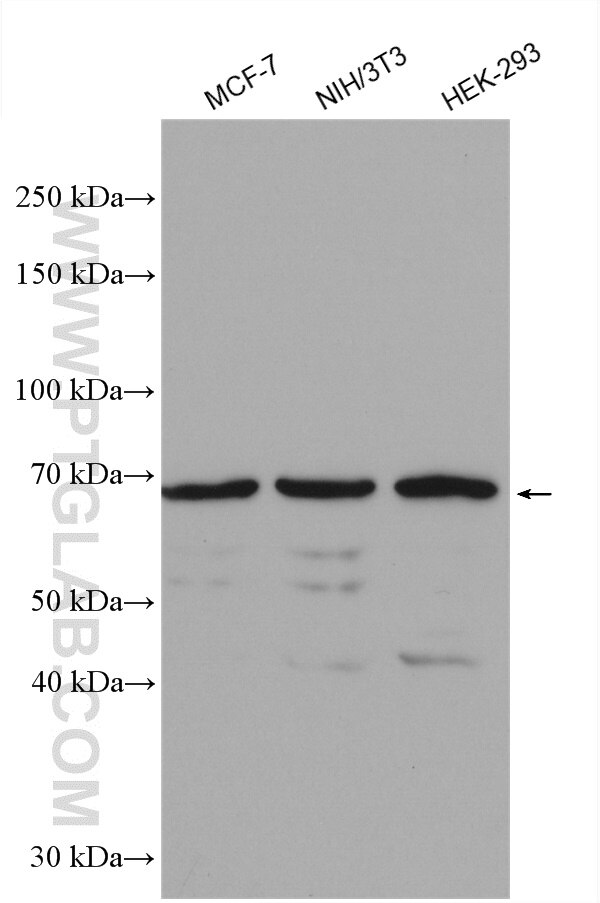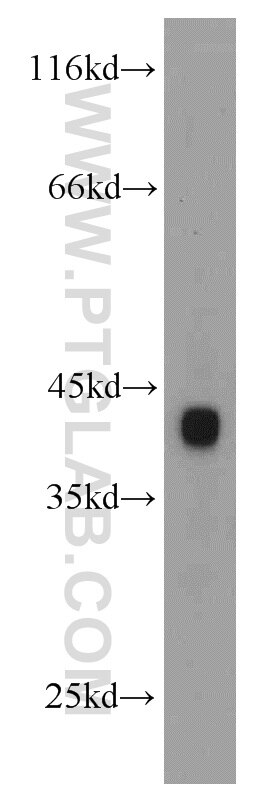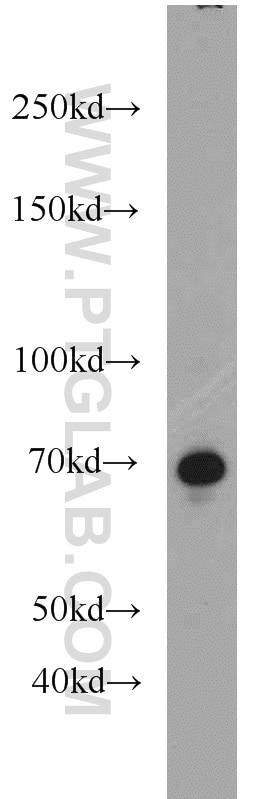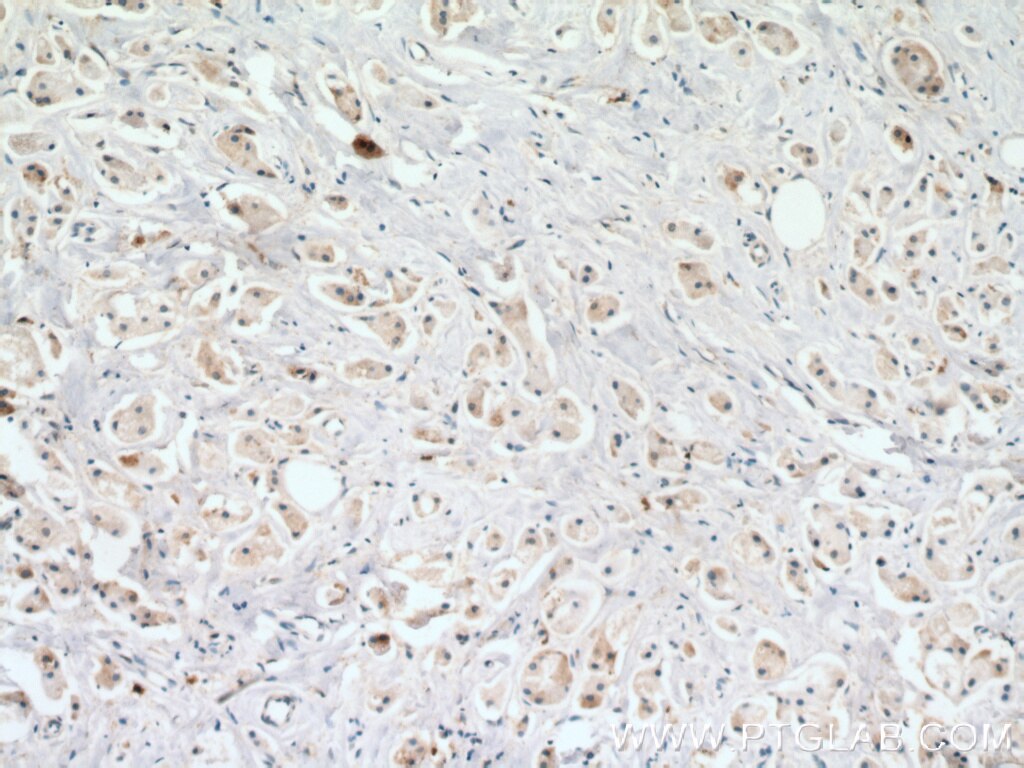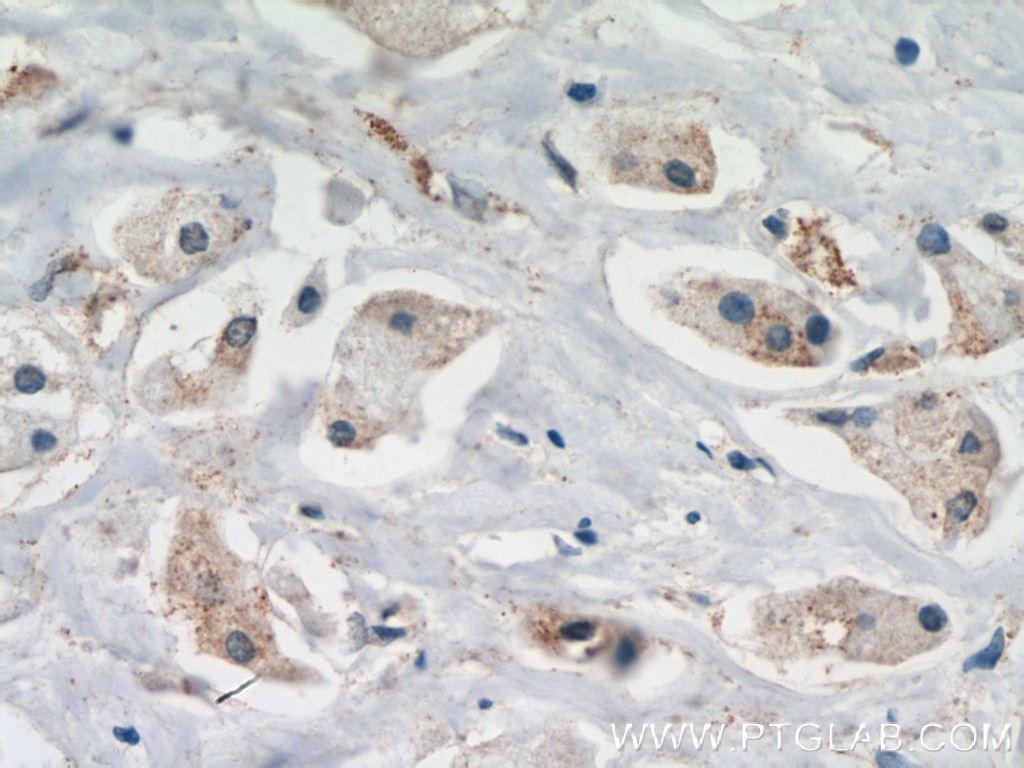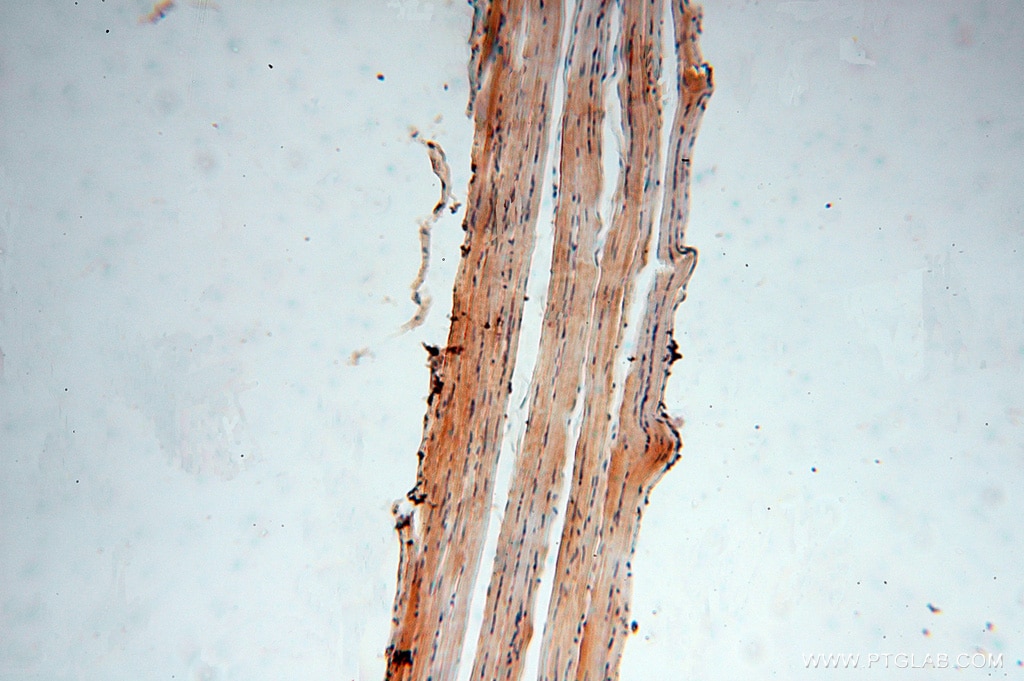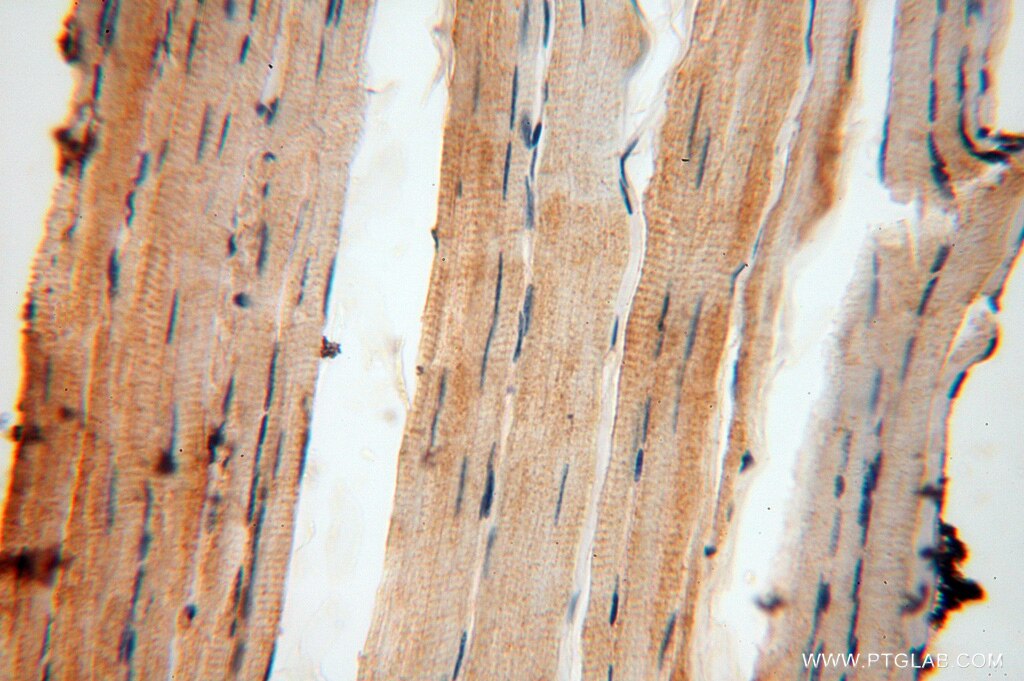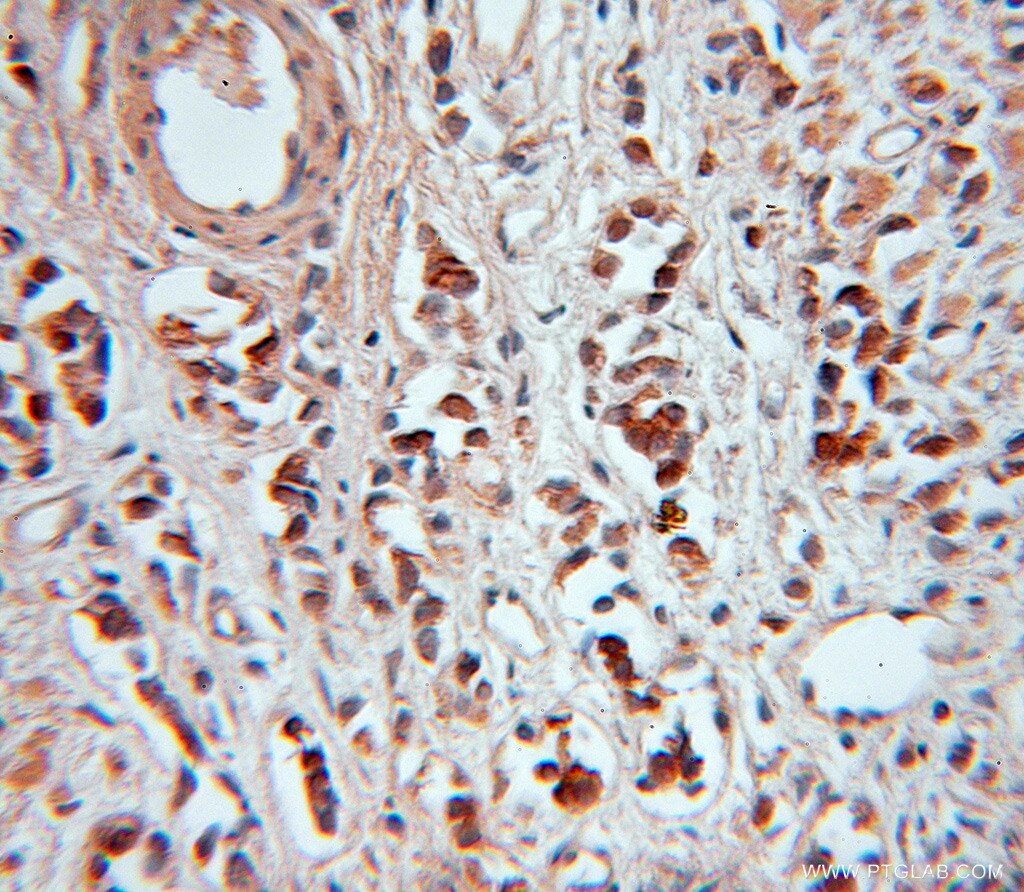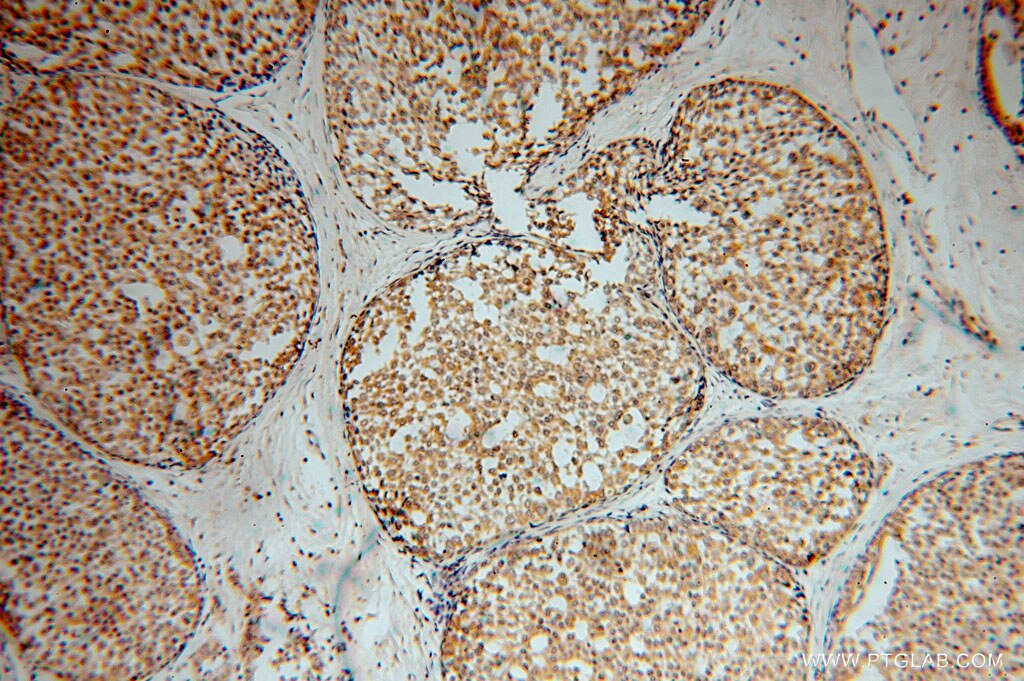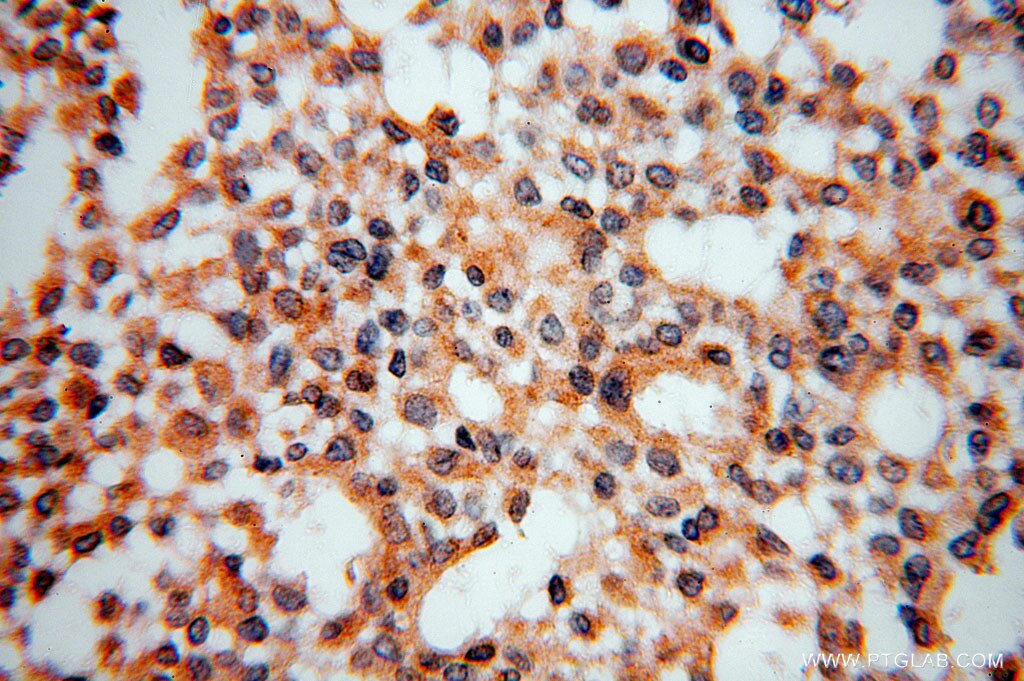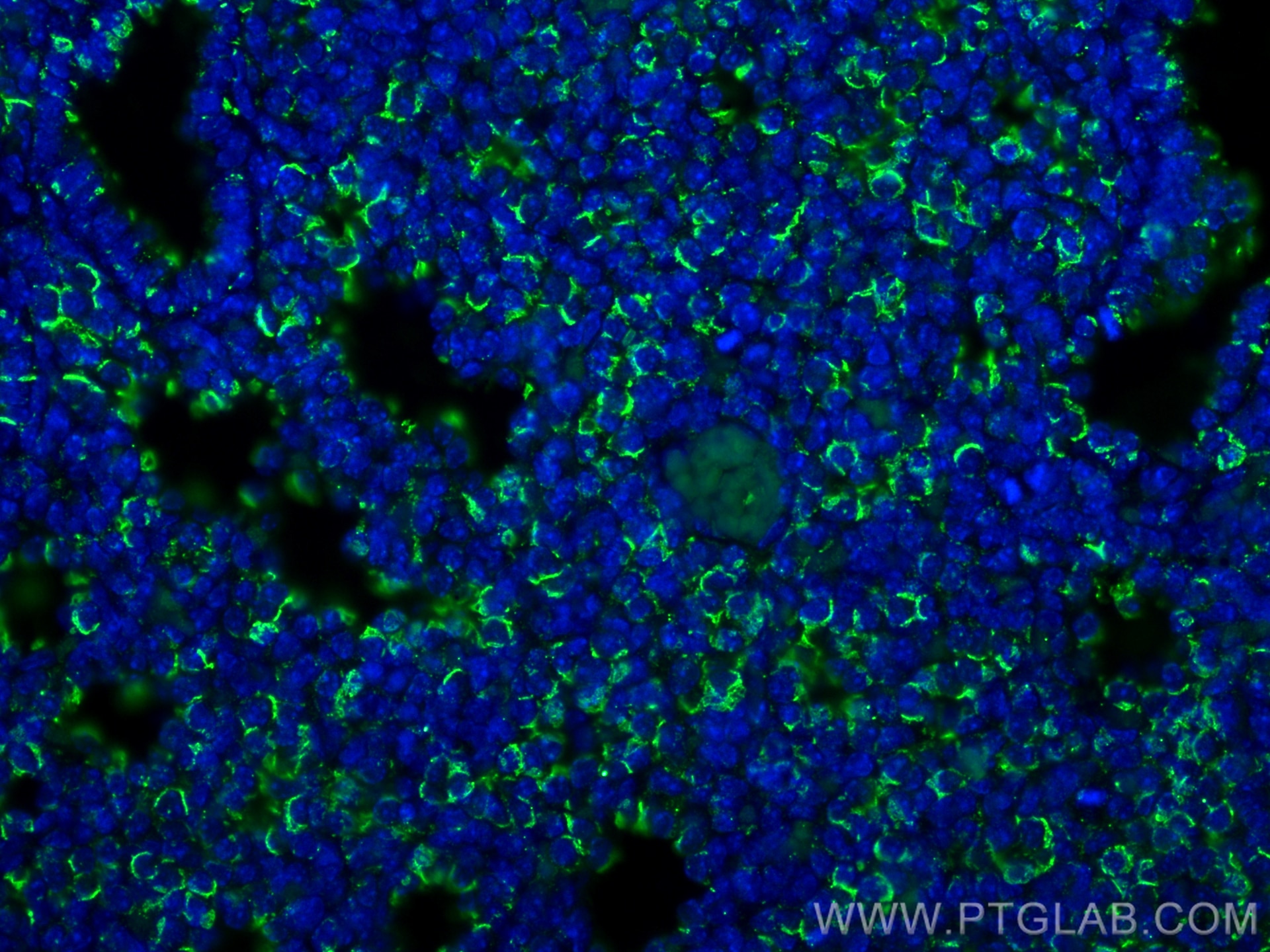Tested Applications
| Positive WB detected in | NIH/3T3 cells, mouse brain tissue, mouse kidney tissue, MCF-7 cells, HEK-293 cells |
| Positive IHC detected in | human breast cancer tissue, human prostate cancer tissue, human skeletal muscle tissue, mouse kidney tissue, rat liver tissue Note: suggested antigen retrieval with TE buffer pH 9.0; (*) Alternatively, antigen retrieval may be performed with citrate buffer pH 6.0 |
| Positive IF-P detected in | mouse embryo tissue |
Recommended dilution
| Application | Dilution |
|---|---|
| Western Blot (WB) | WB : 1:500-1:2000 |
| Immunohistochemistry (IHC) | IHC : 1:50-1:500 |
| Immunofluorescence (IF)-P | IF-P : 1:50-1:500 |
| It is recommended that this reagent should be titrated in each testing system to obtain optimal results. | |
| Sample-dependent, Check data in validation data gallery. | |
Published Applications
| KD/KO | See 3 publications below |
| WB | See 16 publications below |
| IHC | See 8 publications below |
| IF | See 3 publications below |
| CoIP | See 1 publications below |
Product Information
10392-1-AP targets USP2 in WB, IHC, IF-P, CoIP, ELISA applications and shows reactivity with human, mouse, rat samples.
| Tested Reactivity | human, mouse, rat |
| Cited Reactivity | human, mouse, rat |
| Host / Isotype | Rabbit / IgG |
| Class | Polyclonal |
| Type | Antibody |
| Immunogen | USP2 fusion protein Ag0591 Predict reactive species |
| Full Name | ubiquitin specific peptidase 2 |
| Calculated Molecular Weight | 41 kDa, 69 kDa |
| Observed Molecular Weight | 68 kDa, 41-45 kDa |
| GenBank Accession Number | BC002955 |
| Gene Symbol | USP2 |
| Gene ID (NCBI) | 9099 |
| RRID | AB_2212432 |
| Conjugate | Unconjugated |
| Form | Liquid |
| Purification Method | Antigen affinity purification |
| UNIPROT ID | O75604 |
| Storage Buffer | PBS with 0.02% sodium azide and 50% glycerol pH 7.3. |
| Storage Conditions | Store at -20°C. Stable for one year after shipment. Aliquoting is unnecessary for -20oC storage. 20ul sizes contain 0.1% BSA. |
Background Information
Ubiquitin, a highly conserved protein involved in the regulation of intracellular protein breakdown, cell cycle regulation, and stress response, is released from degraded proteins by disassembly of the polyubiquitin chains. The disassembly process is mediated by ubiquitin-specific proteases (USPs). USP2 is also named as UBP41. USP2 can interact indirectly with multiple clock proteins, so it remains possible that USP2 may modulate the ubiquitination and function of these other proteins. It has 4 isoforms produced by alternative splicing. This antibody is specific to the isoform 1(USP2a) of USP2.
Protocols
| Product Specific Protocols | |
|---|---|
| WB protocol for USP2 antibody 10392-1-AP | Download protocol |
| IHC protocol for USP2 antibody 10392-1-AP | Download protocol |
| IF protocol for USP2 antibody 10392-1-AP | Download protocol |
| Standard Protocols | |
|---|---|
| Click here to view our Standard Protocols |
Publications
| Species | Application | Title |
|---|---|---|
Gastroenterology Dual inhibition of CDK4/6 and XPO1 induces senescence with acquired vulnerability to CRBN-based PROTAC drugs | ||
FASEB J Ubiquitin-specific protease 2-69 in macrophages potentially modulates metainflammation. | ||
J Cell Mol Med Ubiquitin-specific protease 2 regulates Ang Ⅱ-induced cardiac fibroblasts activation by up-regulating cyclin D1 and stabilizing β-catenin in vitro.
| ||
Mol Nutr Food Res 3,3'-Diindolylmethane suppresses high-fat diet-induced obesity through inhibiting adipogenesis of pre-adipocytes by targeting USP2 activity. | ||
Mediators Inflamm Overexpression of Ubiquitin-Specific Protease 2 (USP2) in the Heart Suppressed Pressure Overload-Induced Cardiac Remodeling. | ||
J Cancer Res Clin Oncol USP2 promotes cell proliferation and metastasis in choroidal melanoma via stabilizing Snail |
